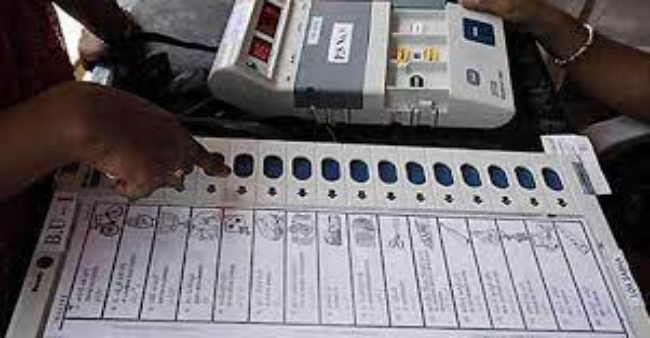Swing constituencies will be in focus again when votes are cast for electing new Assemblies in the two states.
NEW DELHI
In nearly 20% of the Assembly constituencies in Madhya Pradesh and Chhattisgarh, the victory margin of winning candidates in the 2018 elections was less than 5,000 votes. These swing constituencies will be in focus yet again when votes are cast on 7 and 17 November for electing new Assemblies in the two states. On most of these seats, the fate of the victorious candidate would not only depend on the hard work put in during campaigning but also on the number of votes of her or his nearest rival cut by independents or candidates of smaller outfits like AAP, BSP and Samajwadi Party. In 2018, there was barely a difference of 0.13% in the vote share of the BJP and the Congress in MP. The final tally could have changed drastically with even
Though the BSP could win just two seats in Madhya Pradesh, its candidates stood third in many closely fought battles and bagged more votes than the victory margin between the elected candidate and the runner-up.
Out of the 230 constituencies in MP, there were 40 seats on which the victory margin was less than 5,000 in 2018. In Chhattisgarh, a victory margin of less than 5,000 was recorded in 15 out of the 90 constituencies in the state.
In Madhya Pradesh, there were 10 close encounters in the 2018 Assembly elections where the margin of votes went down to three digits. In Chhattisgarh, such contests were just two. The cliff-hangers in MP with three-digit victory margins included Gwalior South seat where the victory margin was just 121.
Here Praveen Pathak of the Congress got 56,369 votes while BJP’s Narayan Singh Kushwah got 56,248 votes. An independent, Sameeksha Gupta came third with 30,745 while BSP’s Aseem Shah came fourth with 3,098 votes. Similar contests that went down to three-digit victory margins included seats like Kolaras (720), Bina (460), Rajnagar (732), Damoh (798), Jabalpur Uttar (578), Bina (460), Biaora (826), Rajpur (932), and Jaora (511).
In Suwasra constituency in Mandsaur district of MP, the victory margin of Congress Hardeep Singh Dang was 350. He got 93,169 votes as against his BJP rival Radheyshyam Nanalal Patidar’s 92,819.
In Chhattisgarh, the difference of overall vote share between the Congress and the BJP was 10% in 2018. While there were 15 constituencies out of the 90 in which the victory margin was below 5,000, only two seats saw a three-digit victory margin.
In Dhamtari constituency, Ranjana Dipendra Sahu of the BJP won by 464 votes, beating Gurmukh Singh Hora of the Congress. Sahu got 63,198 votes while Hora managed only 62,734. The other seat in which the victory margin was below 1,000 was Khairagarh in Rajnandgaon district. In this constituency, Janata Congress Chhattisgarh (Jogi) candidate Devwrat Singh got 61,516 votes just 870 more that his BJP rival Komal Janghel’s 60,646 votes.
Meanwhile, analysts say political realignment over the past five years in these states may impact the election result in both MP and Chhattisgarh. The entry of new outfits like the AAP and other players from neighbouring states, including BSP, SP and BRS, may also chip away a part of the traditional vote base of the two arch rivals BJP and Congress.
How BSP candidates spoilt the chances of Congress and BJP nominees is visible from examples like the Kolaras constituency in Madhya Pradesh where BSP candidate Ashok Sharma won 16,483 votes in a contest that was decided by a margin of 720 votes. The BJP candidate Birendra Raghuvanshi had procured 72,450 votes while his Congress rival got 71,730 votes.
In Chhattisgarh Assembly elections in 2018, the contest for Janjgir-Champa seat saw the BSP candidate win 33,505 votes. The victorious candidate from BJP, Narayan Chandel (54,040 votes), had beaten Congress nominee Motilal Dewangan (49,852) by 4,188 votes. This example shows the potential of strong candidates from smaller parties to upset the calculation of other candidates and throw up surprise results during closely fought contests.
As the battle lines are drawn for voting in Chhattisgarh on November 7 (first phase) and November 17 (second phase) along with single phase voting in Madhya Pradesh on November 17, strategists from all parties will be keenly observing the 55-odd seats – 40 in MP and 15 in Chhattisgarh – where the candidates won by less than 5,000 votes. Such seats hold promise for both the victorious party or candidate as well as those candidates who came second, as the low victory margin tends to make the top three contesting parties believe that they can remain in the contest till the last EVMs’ votes are counted.

